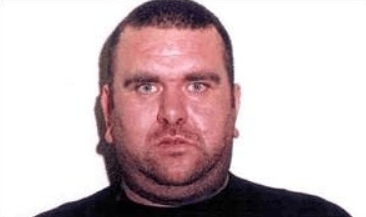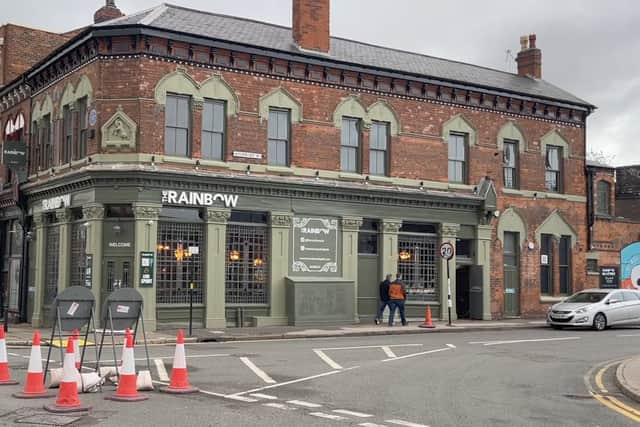Crime Files: The brutal murders by Rainbow pub worker Philip Smith that shocked Birmingham
and live on Freeview channel 276
Twenty-three years have passed since the shocking murders of three women in Birmingham by pub worker Philip Smith.
Smith, who was known as Bigfoot due to his large frame, killed his victims over a four-day period in November 2000 - befriending two of them at the Rainbow pub in Digbeth where he worked at the time before carrying out the vicious crimes.
Advertisement
Hide AdAdvertisement
Hide AdThe killings shocked the city to its core, and their was a collective sign of relief when Smith was caught and convicted all those years ago. We’ve had a look back over the infamous case
Who was Philip Smith?
Born in Gloucester in 1965, Smith was the son of a labourer and the oldest of five siblings.
The family grew up on Midland Road, where they were, coincidently, neighbours to serial killers Fred and Rose West. Smith went to a special school for children with learning difficulties and left school at 14, before going on to work as a farmhand, labourer and security guard.
By the early 1990s, Smith had three children with his girlfriend, before he left the family and moved to Cardiff when the relationship became difficult.
Advertisement
Hide AdAdvertisement
Hide AdAfter a spell in Ireland, Smith moved to Birmingham came in 1999 where he settled in Sparkbrook. He became wel known locally as La La from the television series teletubbies with his weight and height: 22 stone and 6ft 4ins.
Smith worked at the Rainbow, where he was employed on a casual basis as an odd-jobber and served as an unofficial taxi driver for drinkers.


The murders
Smith met two of his three victims at The Rainbow. He met 21-year-old Jodie Hyde, a butane gas addict, at the pub. The two had been seen leaving together before Smith killed her. Police believe he strangled her at his flat, before dumping and burning the body in Sparkbrook.
Four days later, he met 25-year-old mother of three Rosemary Corcoran at the pub. Smith offfered Corcoran a lift home, but she never got there.
Advertisement
Hide AdAdvertisement
Hide AdHe took her to Worcestershire, before brutally bludgeoning her to death near Droitwich Spa. A police patrol car had actually stopped the car earlier in the evening before they Birmingham while they were in Handsworth, but Smith convinced officers everything was ok before driving off. This was the last time Rosemary was seen alive.
She was found at 8:30 am on 12 November by a man walking his dog by the Robin Hood pub in Droitwich. Smith beat her so badly, her teeth had come out and she had tyre marks on her body.
Smith’s murderous spree continued. Carol Jordan, a 39-year-old care home worker and mother of six from Balsall Heath was walking to work when Smith hit her with his car, making her his third victim.
Smith moved her to another location and beat her so much that dental records were required to identify her corpse. The body was also discovered on 12 November, by Lee Bank. Carol had been punched, kicked and stamped on so hard, her liver had split.
Advertisement
Hide AdAdvertisement
Hide AdSmith was arrested on suspcion of murdering Corcoran . Police began to suspect there was a link with all three killings, especially as Hyde had also last been seen alive leaving The Rainbow with Smith before her body was discovered.


Charge and conviction
Smith contacted the force and made a statement. Detective Constable Ruth Wilkins later recalled Smith’s phone call.
She said: “He said he would like to come to the police station to help with the inquiry and that he had seen Corcoran on Saturday night leave the pub with an unknown man.
“He insisted he would like to come over to the police station. He said he had been asked to contact the police by someone else and gave his mobile number.”
Advertisement
Hide AdAdvertisement
Hide AdHe admitted he was with her that night, but claimed she left with another man. Although Smith maintained his innocence, detectives quickly gathered evidence linking him to Corcoran’s death and those of the other two women.
Witnesses had seen him leaving the Rainbow with both Corcoran and Hyde, and he was the last person to see them both alive. CCTV footage from around Birmingham showed his car visiting key locations linked to the investigation, and even captured Hyde getting out at one point to visit a chemist.
Smith was also captured driving around Bromsgrove, which is close to Droitwich where Corcoran’s body was found. Police also found blood stained clothes in Smith’s bath at his home.
He claimed he stole second hand clothing from charity shops and from the streets. Among the clothes were Rosemary’s trousers. Smith was also discovered on CCTV at a petrol station covered in blood and claimed he’d been in a fight.
Advertisement
Hide AdAdvertisement
Hide AdA bag containing items belonging to Hyde was discovered outside his house. Smith was charged with the three murders and although he initially pleaded not guilty, he later changed his plea and was jailed for life in July 2001.
Was Patricia Lynott Smith’s fourth victim?
In the years that followed the murders, Smith was also strongly linked to the death of Patricia Lynott, a woman who worked as a cleaner at the Rainbow while he worked there.
She was found dead at her home in Bordesley Green on October 23 2000. It was initially believed the 47-year-old mother died of natural causes, but in 2001 her body was reexamined.
An inquest later revealed that marks on her back and arm could have been bruising, but it wasn’t possible to say what caused her death. It was also later revealed that Patricia was found with a livid gash on her forehead when she was found, although police believed it was caused by a fall.
Advertisement
Hide AdAdvertisement
Hide AdWas smith ever interviewed over Patricia’s death?
West Midlands Police confirmed that Smith was interviewed over the death of Patricia, but no charges could be brought against him due to the open verdict.
In a statement issued to BirminghamWorld, a spokeswoman for WMP, said: “Officers investigating Philip Smith interviewed him surrounding the death of Patricia Lynott, however an inquest in 2006 returned an open verdict and therefore no charges have been brought against Smith for her death.”
